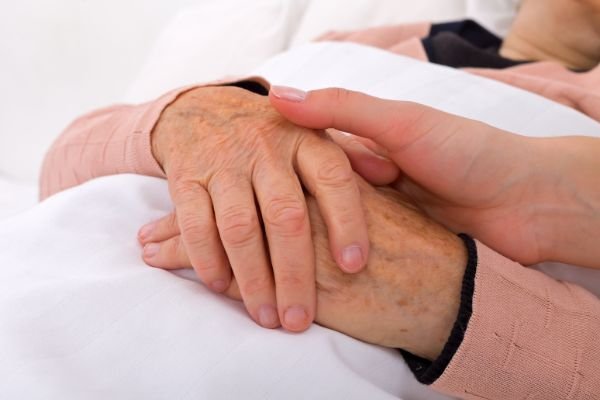How we have helped secure NHS CHC funding for clients
As we’ve mentioned, getting approval for NHS CHC Funding can be a bit of minefield. Unless you know exactly what the NHS needs to be included in the application, and you have previous experience in applying for the funding, it can be a daunting and stressful process for you to go through.
Hilary Cragg, a Partner and Solicitor, who is highly experienced in applying for NHS CHC Funding, can take this stress away from you and effectively apply for the funding for you.
You can find out more about how Hilary can help on our NHS Continuing Healthcare Funding page, but we thought it was important to show you a snapshot of Hilary’s experience in successfully applying for NHS CHC funding for clients. You can find some of these examples, below.
If you would like to speak to Hilary about this work and how she can help you, please call her on 01752 827047 or email her at hcragg@nash.co.uk
arrow_back Back to NHS CHC funding
£83,447 was recovered following Mrs. Y’s passing
Mrs. Y was 92 when she died and had been in care for 5 years. She had always been a cantankerous person before she became ill with dementia, but in addition, she became paranoid when she was admitted into care, believing that everyone was trying to harm or kill her, including her own family. This resulted in her being uncooperative with her care and would even be physically aggressive at times, but as she became frailer, her ability to be aggressive waned.
Her dementia was severe, so she had little or no language skills and could not express her needs. She had arthritis and moving was very painful for her as her condition progressed, her mobility decreased and, in the end, she was hoisted when she needed to be moved. Prior to hoisting, she could move around with some assistance and monitoring, but she was very frightened of falling and was at high risk of falls. Because of her dementia, she was unable to recognise that she was hungry, and her appetite was reduced, so she lost weight. She was underweighting by the time of her death. She was doubly incontinent. Her estate recovered £83,447.31.
We helped Mr. G receive a £2,500 a week care package
Mr. G is a learning disabled man with many interacting mental health issues, as well as his intellectual impairment. He can at times be calm and happy and at other times, anxious and aggressive towards anyone in his vicinity. As a result, he is known to the police and his care team need to be careful when he is taken out in public areas to ensure that he remains calm. There are some known triggers for his anxiety, which can escalate rapidly, he therefore requires a skilled care team to manage this. He loves his food and his care team need to be careful around his nutritional needs, to ensure that he does not put on weight and that his weight is managed, as he is very overweight, but they are trying to bring down his weight.
He has psoriasis and needs skin creams to manage this, which are worse when he is anxious. He has limited language skills and cannot ask for what he wants and struggles to express any of his needs. He has a sleep disorder, the causes of which are unknown, but he can go for 2-3 days without any sleep, by which time, he is anxious, aggressive, unpredictable and believed to be hallucinating. His care team need to be very careful around him at these times and once he has managed to get some sleep will be calm again, but the pattern of his sleep disorder is irregular. He has multiple medications to manage his mental health issues. His care package costs around £2,500 per week.
Mrs. F received a care package of £1,100 per week thanks to our help
Mrs F had a fall whilst out walking, fell backwards and partially broke her spine. She retained her cognitive abilities, so was fully aware of her physical impairment and need to have all of her care needs met. She was upset and depressed at her situation and could be rude towards her carers from time to time due to her depression and frustration. She could hold her own weight on a good day, but on a poorly day was hoisted. She was unable to control her body temperature because of her partial spinal break. She was doubly incontinent and at times would become very constipated, for which she needed assistance. She would also experience vaso vagal episodes, when she would suddenly become very dizzy and would need to be lane down flat and wait for the episode to pass. During these times, she would need to be carefully monitored. She has some use of her hands, but much more limited use of her legs, which needed to be moved for her. She later had a stroke and died. Her care cost £1100 per week and in addition recovered £94,890.41 was recovered for her estate after she died.
call Speak to a friendly Care Support Solicitor on 01752 827047
£154,675.29 was recovered for Mrs. J
Mrs. J had severe dementia and would have episodes when she could not be roused, often for hours at a time. When she was awake, she was upset and angry with her carers or would simply be screaming out. It was later discovered that she was in severe pain, which improved her screaming when it was managed. She was immobile and had contractures on both of her hands, which were clawed. She had osteoporosis and significant rigidity in her body. Positioning her was crucial to prevent her from being in pain. She was underweight, as she had difficulty swallowing either food or mediation, as it would often just dribble back out of her mouth again. Due to her low weight, she was considered to be nutritionally at risk. She was in care for 6 years and recovered £154,675.29 for her estate.
Mr M was awarded £28,920
Mr M was an elderly gentleman who had had a stroke, which left him immobile, with no speech, limited mobility and unable to swallow. He therefore had a catheter, as well as a PEG feeding tube into his stomach. He would occasionally be able to have small tastes of food, so that he could still enjoy those, but even these could be difficult at times. Mr M was very agitated and would scream out, although he was not using words to express his needs, merely making loud noise. He would become very anxious with the care staff and would attempt to pull out his catheter and/or PEG at times. He would also unpredictably hit out against the staff who were looking after him. The nursing staff caring for him often had to give him medication prior to any intervention to help keep him calmer. He was unable to move much himself and was hoisted from his bed into his chair and back later on in the day. He would then often fall out of his chair, as he would fidget and move. Mr M developed a number of low grade pressures sores that needed dressing over the time he was in care and because he was constantly fiddling with his PEG, the wound to that needed treating as well. He was awarded £28,920.
We helped Mr P gain backdated CHC Funding with approximate value of £60,000
Mr P had had Parkinson’s for many years. By the time that he was admitted into a care home, the Parkinson’s had progressed significantly. He had difficulty eating and the staff had to ensure that he was sitting up straight and his food was pureed, his feeding could not be rushed, as this would cause him to produce excess saliva, which was a choking risk. He would occasionally be incontinent, but mostly his needs were managed by being taken to the loo on regular occasions. Mr P would very restless at night and was at very high risk of falling, so required 1:1 care at night to prevent falls. He has some memory loss and his speech was difficult, but he could express some of his needs, however at the times when he struggled, he would become anxious and frustrated. He would suffer from anxiety from time to time, so needed some gentle reassurance during the day time. He also hallucinated, which would make him much more anxious when these were happening. His cognitive abilities were declining and he would be particularly confused at night, especially around his own abilities, which put him at risk. He was generally not aggressive, except at night, when he was more likely to be disorientated, at these times he would become determined to get out of bed and would resist persuasion to stay. He was more likely to hallucinate at night and become anxious, frightened and aggressive at these times. Mr M’s medication needed to be supervised and his Parkinson’s medication was time sensitive. He was awarded CHC funding backdated to the time he was admitted into care, with a value of approx. £60,000 per year.
£17,219 was awarded to Mrs T
Mrs T was 91 when she died and had had dementia for 10 years. She was nursed in bed and needed to be positioned very carefully, otherwise she would choke, including on her own saliva. She needed to be hoisted when she was moved. Mrs T was very underweight and ate a pureed diet and food supplements. She was doubly incontinent. She was at very high risk of chest infection and her throat was constantly “bubbly”. She has no memory, could not communicate verbally at all and all decisions were made for her on her behalf. She was also very sleepy, which meant that feeding her and giving medication could be more challenging, if she was too sleepy to eat, drink or swallow her meds. She was awarded £17,219.
Mrs D was awarded £24,284
Mrs D was in care for a around 1 year. She had dementia and was very confused, she did not recognise any of her family members when they visited and had little or no communication ability. She was always aggressive during care interventions, particularly intimate care. She would get anxious and tearful at times, the staff could not reassure her, but had to keep an eye on her until she forgot and her mood passed. She was ambulant and would wander round the care home, but she was at high risk of falling and did fall over numerous times. She had two minor strokes whilst she was in care. Because of her anxious and aggressive state, there was a lot of input from her doctors to try to find the right combination of medication to help manage her symptoms, none of which were successful and she remained agitated. She was awarded £24,284.
call Speak to a friendly Care Support Solicitor on 01752 827047
Related insights
Meet the Care Support team
Get in touch
Fill out the form below and let us know whether you would like us to call you, or email you. One of our Care Support team will be in touch as soon as we can.
If your enquiry is urgent then please call us on 01752 827047.
arrow_back Back to CHC Funding












